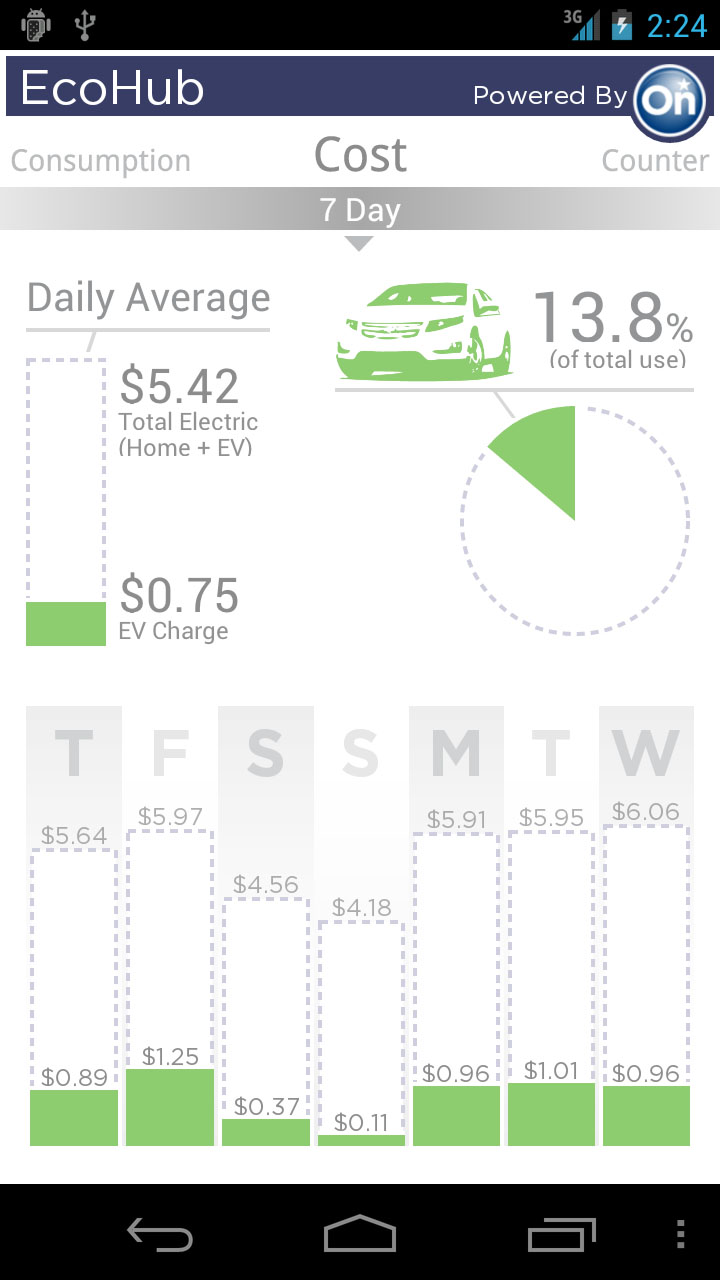Owners of the Chevy Volt range-extended electric car are often pretty technically advanced.
Many are conversant not only with auto technology but also with apps and software analysis tools.
Two weeks ago, the online Volt community erupted when OnStar abruptly shut stopped giving data access to VoltStats.net, a collaborative tool that let almost 2,000 Volt owners analyze their own and aggregated electric and gasoline use.
Now, GM and its OnStar unit have reversed course.
The company plans to post a statement--later this afternoon or possibly tomorrow morning--that will explain the reasoning behind its actions, said Volt communications manager Michelle Malcho.
[UPDATE: The statement is now available on the Chevrolet Volt Facebook page. It reads:
We want to apologize for any inconvenience associated with VoltStats.net. We understand that many of you value the energy tracking that VoltStats.net provides, but we want to ensure that all access to your and OnStar's data is properly authorized.
We are working with the developer to get the site up and running so that you will not have to provide your OnStar ID and password to obtain VoltStats data. In the end, this is the best of both worlds, where our data is better protected and you will have the energy tracking data provided by VoltStats.net.
Thank you for your patience while we work through this issue.
GM wants to reassure Volt owners--some of its newest and most dedicated--that the VoltStats app they prize will regain access to that data, once security changes designed to protect user data are implemented.
The 1,900 users of VoltStats have each given the app their Onstar login and password; it regularly then downloads their cars' operating data, adding it to a database of similar data from all users.
That allowed owners to compare their electric and gasoline usage, combined fuel efficiency, and mileage covered to those of other owners, and to the average of all owners.
OnStar uses this data in the EcoHub app it is now testing, but VoltStats offers various additional metrics that OnStar doesn't provide.
On October 13, OnStar denied access to VoltStats--meaning that while Volt owners had given it permission to retrieve that data, GM was not permitting that.
As noted by InsideEVs.com two days ago, VoltStats operator Mike Rosack felt frustrated by his conversations with the company.
Malcho, the Volt spokeswoman, said that OnStar took the action not because it disliked VoltStats, but to protect confidential user information that the app could have exploited.
When a Volt owner hands over a login and password, that gives access to the owner's entire OnStar user profile.
This includes access to credit-card information and personally identifiable data that, Malcho said, users most likely wouldn't want to open up to a third-party app.

Chevrolet Volt OnStar EcoHub App
After GM and OnStar engaged in two weeks of legal and technical discussions, Malcho said, the participants came to a conclusion last night.
The new procedure will ask a VoltStats user to give permission to acquire the car's data not by providing an OnStar login, but a surname and some vehicle identifier, perhaps the last four digits of the VIN.
OnStar will use that information to validate the owners, and then download their usage data twice daily into a growing spreadsheet that will be conveyed to VoltStats.
Malcho said the new procedure should be implemented within a week or two.
The data provided will contain all the same information as before, she said, meaning VoltStats can return to normal--without the risk of access to the user's full Onstar profile.
Going forward, GM expects other third parties to want access to the OnStar data from cars like the Volt, she said. And the company knows that owners very much value the services and analyses these applications can offer.
The company plans to evaluate each request individually, working with the companies to provide data as appropriate while protecting OnStar users' security.
The question Malcho wasn't able to answer definitively was the simplest one of all: Who owns the data that your car generates?
We'll have more to come on this topic in another article. But what do you think: Does the owner who paid for the car own the data it creates? Or does the automaker own it?
Leave us your thoughts in the Comments below.
+++++++++++













